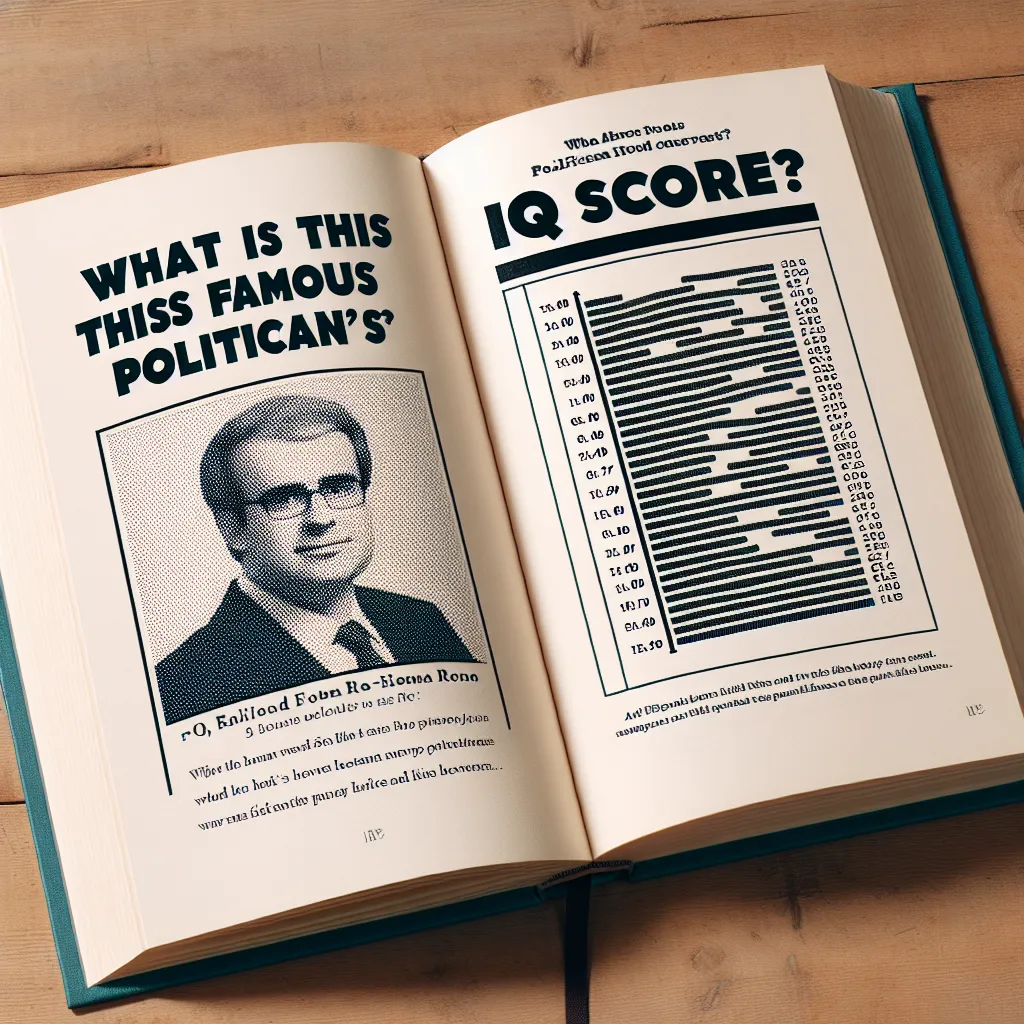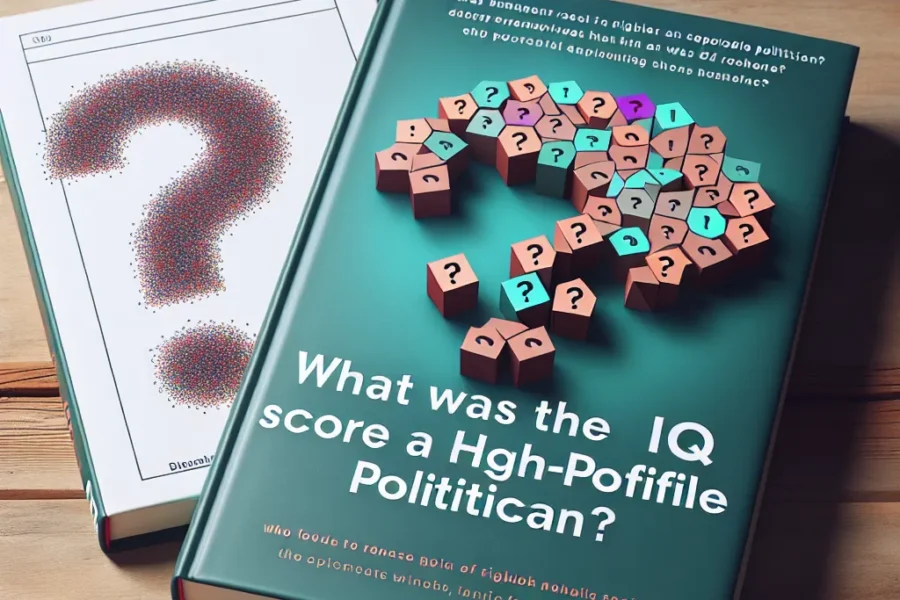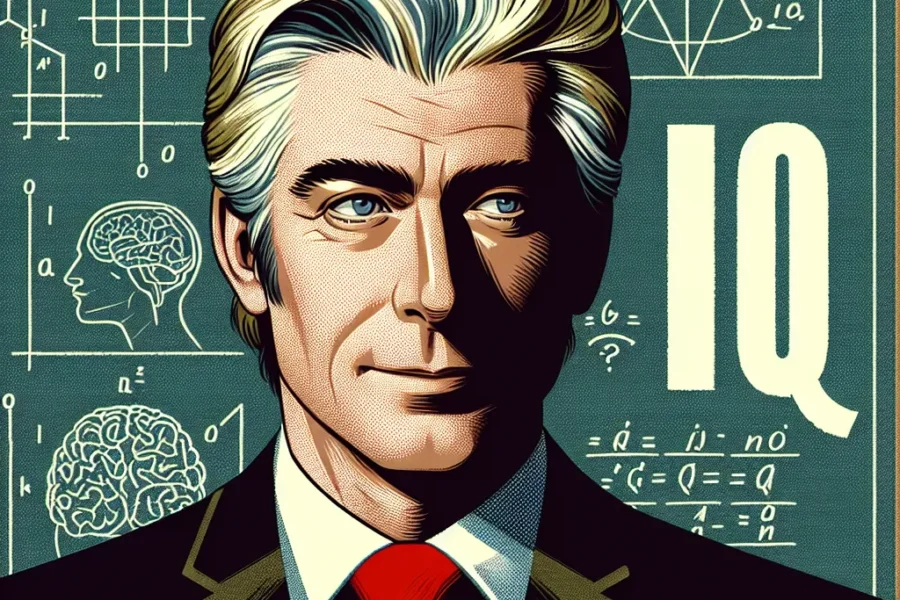Barack Obama, the 44th President of the United States, is a figure who has consistently sparked intrigue and discussion across various subjects, one of which is his intelligence quotient (IQ) score. Many people are curious about the cognitive abilities of prominent leaders, and Obama’s intellectual prowess has frequently been the subject of speculation. In this extensive analysis, we will delve into the evidence surrounding Obama’s IQ, discuss the factors that have contributed to the public’s perception of his intelligence, and offer insights into what an IQ score truly represents.
If you are looking for legitimate IQ Tests which pass the entry bar for Mensa, see our IQ Tests.
To begin with, it is important to clarify that Barack Obama’s actual IQ score has never been publicly disclosed. Unlike standardized test scores or academic records, an individual’s IQ score is often considered personal information. Ex-presidents are no exception when it comes to privacy regarding their cognitive assessment results. Any discussion about Obama’s IQ is, therefore, largely speculative and must be approached with an understanding of the limitations of available data.
Despite the absence of a public IQ score, it is clear that Obama possesses significant intellectual abilities. His academic journey reflects a series of noteworthy accomplishments. Born on August 4, 1961, Obama attended renowned institutions for his education. He graduated from Columbia University with a degree in political science and later attended Harvard Law School, where he made history as the first African American president of the prestigious Harvard Law Review.
Obama’s tenure at Harvard Law School is particularly revealing. Securing a position on the Law Review requires an exceptional level of scholastic aptitude and critical thinking skills. His role as president of the Law Review also emphasizes his leadership abilities and proficiency in complex legal analysis. These accomplishments collectively paint a picture of a highly intelligent individual, suggesting that his IQ is likely to be well above average.
Examining Obama’s professional career offers further evidence of his intellectual capabilities. As a community organizer in Chicago, a constitutional law professor at the University of Chicago, and an Illinois state senator, Obama demonstrated a deep understanding of social, legal, and political issues. His articulate and thoughtful approach to policy-making and governance underscores his analytical skills and ability to process information at a sophisticated level.
Public perceptions of Obama’s intelligence are also shaped by his oratorical skills. Known for his eloquent and impactful speeches, Obama has the ability to convey complex ideas with clarity and persuasion. This talent is often associated with high cognitive functioning, as effective communication requires a nuanced understanding of language, context, and audience.
Beyond academic and professional achievements, cognitive abilities can be inferred from one’s handling of diverse and demanding situations. During his presidency, Obama faced numerous challenges, including the aftermath of the 2008 financial crisis, the implementation of the Affordable Care Act, and navigating complex international relations. His ability to make informed decisions and his reliance on empirical data and expert advice highlight his problem-solving skills and intellectual rigor.
While direct evidence of Obama’s IQ score is lacking, various estimates and comparisons have been made by enthusiasts and analysts. Some sources have speculated that Obama’s IQ might be in the range of 130-140, based on the academic and professional indicators mentioned earlier. An IQ score within this range is considered to be “very superior” and would place Obama in the upper echelon of cognitive ability.
However, it is essential to approach such estimates with caution. IQ scores are a measure of certain cognitive abilities, such as logical reasoning, pattern recognition, and problem-solving skills. They are not a definitive gauge of a person’s intellectual worth or potential. Moreover, factors such as creativity, emotional intelligence, social skills, and practical wisdom are not measured by IQ tests but are crucial components of a well-rounded intellect.
Critically evaluating the use of IQ as a sole indicator of intelligence brings us to a broader discussion about the value and limitations of IQ tests themselves. Originally developed by Alfred Binet in the early 20th century, IQ tests were designed to identify children who needed educational assistance. Over time, they have been expanded and refined to measure a range of cognitive abilities. Nonetheless, they remain a subject of debate among scholars and psychologists.
One major criticism of IQ tests is their potential cultural bias. The tests are often based on specific knowledge and problem-solving methodologies that may favor individuals from certain cultural or educational backgrounds. As a result, they might not accurately reflect the intellectual capabilities of people from diverse contexts. Additionally, IQ tests do not capture the dynamic and multifaceted nature of human intelligence.
Another point of consideration is that intelligence is not static. Cognitive abilities can change over time due to various factors, including education, environment, health, and personal experiences. An individual’s performance on an IQ test at one point in time may not necessarily represent their intellectual abilities at a different stage in life. This raises questions about the reliability of using a single score to define intelligence.
In conclusion, while Barack Obama’s official IQ score remains undisclosed, there is ample evidence to suggest that he possesses significant intellectual abilities. His educational and professional accomplishments, combined with his adept communication skills and effective leadership during his presidency, support the view that he is a person of considerable cognitive prowess.
However, when discussing intelligence, it is important to recognize that IQ scores are just one piece of the puzzle. They do not capture the full scope of human intellectual potential and can be influenced by various biases and limitations. Therefore, while the fascination with Obama’s IQ is understandable, it is more meaningful to appreciate the diverse array of skills and talents that contribute to his distinguished achievements.
If you are looking for legitimate IQ Tests which pass the entry bar for Mensa, see our IQ Tests.
Ultimately, Barack Obama’s legacy is defined not only by his cognitive abilities but also by his leadership, vision, and dedication to public service. His intelligence, in the broader sense, encompasses a combination of analytical prowess, emotional insight, and a commitment to making informed and compassionate decisions. As we continue to explore the complexities of human intelligence, it is essential to value these multifaceted qualities and recognize the diverse ways in which individuals contribute to society.



Leave a Comment